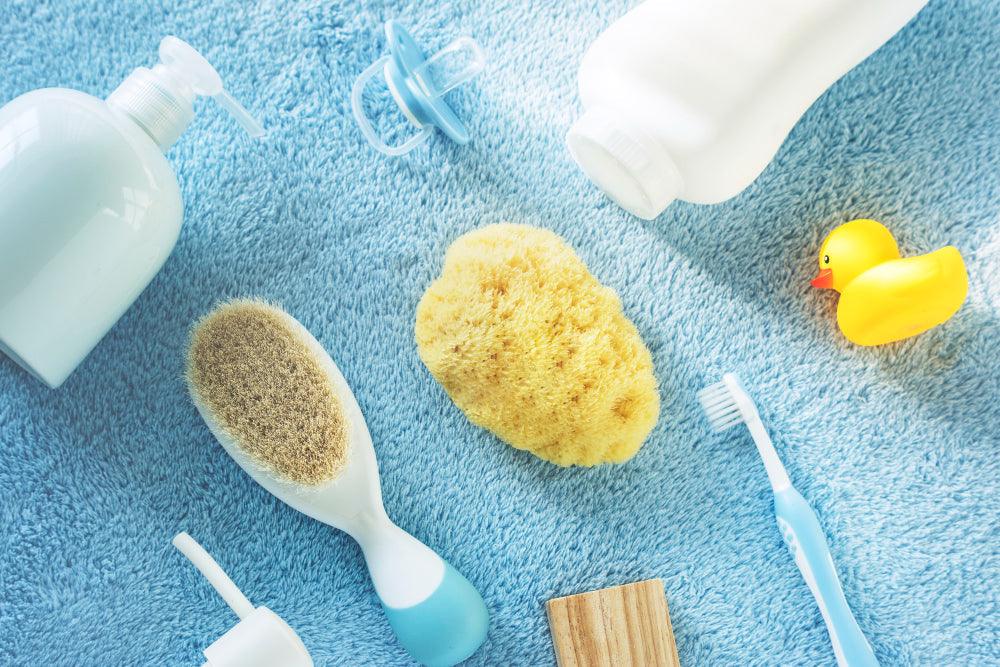In recent years, there has been a significant shift in parenting choices, with more and more parents opting for organic baby products.
This shift is not just a passing trend; it's a conscious choice made by parents who want the best for their little ones. But what's driving this change, and why are parents switching to organic baby products? In this article, we'll explore the compelling reasons behind this growing trend.
Table of Contents
| Sr# | Headings |
|---|---|
| 1 | Introduction: A Natural Choice |
| 2 | 1. Avoiding Harmful Chemicals |
| 3 | 2. Gentle on Sensitive Skin |
| 4 | 3. Environmental Consciousness |
| 5 | 4. Allergen Reduction |
| 6 | 5. Promoting Sustainable Practices |
| 7 | 6. Supporting Local and Small-Scale |
| 8 | 7. Peace of Mind for Parents |
| 9 | Conclusion: A Healthier Start |
| 10 | FAQs: Common Questions About Organic Baby Products |
Introduction: A Natural Choice
The decision to switch to organic baby products is rooted in the desire to provide the best possible care for our infants. These products are free from synthetic additives and are created with a focus on sustainability and health.
1. Avoiding Harmful Chemicals
Preserving purity:
-
No Synthetic Pesticides: Organic products are grown without the use of synthetic pesticides, reducing the risk of chemical exposure.
-
No Artificial Colors or Fragrances: Baby products are free from artificial additives, minimizing the chances of skin irritations and allergies.
2. Gentle on Sensitive Skin
Nurturing delicate skin:
-
Hypoallergenic: Organic baby products are less likely to cause skin irritations, making them suitable for babies with sensitive skin conditions.
-
Natural Ingredients: They often contain soothing ingredients like aloe vera, chamomile, and coconut oil.
3. Environmental Consciousness
A planet-friendly choice:
-
Sustainable Farming: Organic farming practices reduce soil and water pollution, benefiting the environment for future generations.
-
Biodegradable Packaging: Many organic brands use eco-friendly packaging, minimizing plastic waste.
4. Allergen Reduction
Minimizing allergic reactions:
-
No Genetically Modified Organisms (GMOs): Organic products steer clear of GMOs, which can pose allergy risks.
-
Limited Cross-Contamination: Organic facilities have stricter controls to prevent cross-contamination with allergens.
5. Promoting Sustainable Practices
Building a better future:
-
Regenerative Agriculture: Organic farming can help restore soil health and biodiversity.
-
Reduced Carbon Footprint: Organic products often have a lower carbon footprint due to reduced chemical use and shorter transportation routes.
6. Supporting Local and Small-Scale
Fostering community growth:
-
Local Production: Many organic baby products are locally sourced, supporting small-scale farmers and businesses.
-
Transparent Supply Chains: Organic brands often provide transparency about their sourcing practices.
7. Peace of Mind for Parents
Confidence in choices:
-
Third-Party Certification: Many organic products are certified by independent organizations, giving parents peace of mind about their authenticity.
-
Healthier Start: Parents feel confident they are providing a healthier start for their children.
Conclusion: A Healthier Start
The decision to switch to organic baby products is driven by a commitment to the well-being of our children and the environment. It's a choice that prioritizes purity, sustainability, and health, ensuring our little ones have the best possible start in life.
FAQs: Common Questions About Organic Baby Products
Q1: Are organic baby products more expensive?
A1: Organic baby products can be slightly more expensive than conventional ones due to the cost of organic farming practices. However, many parents find the investment in their child's health and the environment worth it.
Q2: Are organic baby products really chemical-free?
A2: While organic baby products have fewer synthetic chemicals, it's essential to read labels and choose certified organic products to ensure they meet stringent organic standards.
Q3: Can I find a wide variety of organic baby products?
A3: Yes, the market for organic baby products has grown significantly, offering a wide range of options, including clothing, skincare, and food.
Q4: Are organic baby products better for the environment?
A4: Yes, organic farming practices prioritize environmental sustainability by reducing the use of synthetic pesticides and promoting soil health.
Q5: Are there any drawbacks to using organic baby products?
A5: Some parents may find organic products to be slightly more expensive, and the variety of options might be more limited in some areas. However, the benefits often outweigh these drawbacks for many families.
Image by rawpixel.com on Freepik










